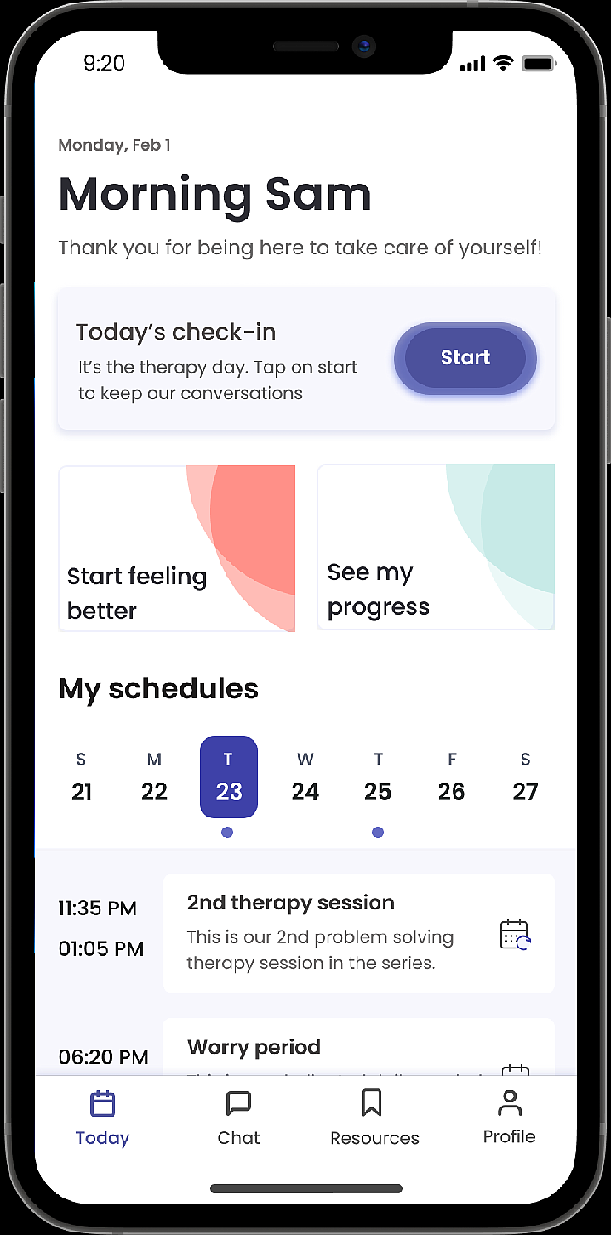Using a Chatbot to Support Caregivers
June 6, 2022 at 7:43 p.m.
A 2020 report by the National Alliance for Caregiving and the AARP estimates that 19% of Americans are unpaid caregivers. In the same report, 23% of caregivers said caregiving has been detrimental to their own health.
“The number one need for family caregivers is actually caring for themselves,” said Dr. Weichao Yuwen, an Assistant Professor at the University of Washington Tacoma’s School of Nursing and Healthcare Leadership.
Self-care and support are important for preventing burnout in caregivers. Not only does burnout hurt the caregivers’ health, it also can hurt their ability to provide care. However, often caregivers don’t have a lot of time or resources to dedicate to themselves.
A smartphone software program, also known as an app, developed by Yuwen and her team hopes to support caregivers in taking care of themselves. The app is called Caring for Caregivers Online, or COCO. It helps caregivers access support, therapy and resources, even when they have limited time.
The app’s main feature is a chatbot, a smart computer program that delivers problem-solving therapy to caregivers through text messaging. Yuwen’s team designed the chatbot to respond empathetically to caregivers and help them identify symptoms, such as sadness or fatigue, and caregiving issues, as well as how to build skills that can improve difficulties they are having. If the chatbot gets stuck or the program can’t answer a caregiver’s question, there are health care providers on the app’s team who can step in and help out.
Yuwen got the idea for COCO when she saw a presentation by researchers who used a chatbot to help people quit smoking. She immediately saw the potential for supporting caregivers. “It’s available on-demand,” said Yuwen. “Caregivers are always overwhelmed with all the caregiving responsibilities and their responsibilities in work and family and life. If they have five minutes to think about caring for themselves…these newer technologies have the potential to really support that.”
The COCO app is showing promise. The team tested the COCO app prototype with 40 caregivers. They found that a 20-to-30-minute therapy session with the chatbot decreased caregivers’ feelings of guilt, sadness and fatigue, and increased their feeling of serenity.
“We envision the first month or two, the caregivers are receiving relatively more intensive therapy to help them identify symptoms and problem-solve to relieve those symptoms,” Yuwen said. “After that, it would be more of the maintenance phase. We know caregiving is long term and there’s ups and downs, so we hope to be with caregivers whenever they need support.”
Next, the COCO team plans to incorporate different cultural perspectives into the app. They
are also preparing to introduce COCO to family caregivers at the University of Washington throughthe University’s Human Resources.
Anyone interested in learning more about the app can visit https://coco.health.
While COCO won’t be available to the public anytime soon, Yuwen had some advice for family caregivers. The first thing was to not let their own health fall by the wayside. “We’re here for the long haul, and we need to be well. Second, there are programs that support family caregivers. There are many resources at the state level…and they could be better utilized.”
For anyone looking for caregiving resources, one place to start is King County’s Community
Living Connections, which can provide information on resources and programs for older adults and caregivers. They can be reached at 1-844-348-5464 or at www.communitylivingconnections.org.





